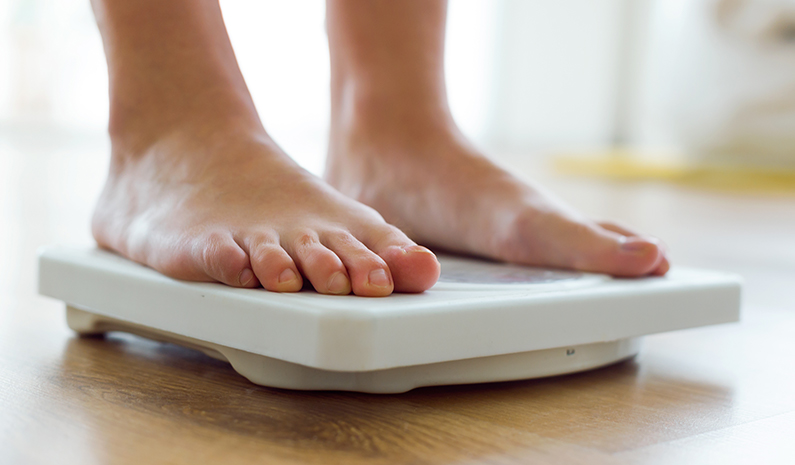It’s no secret that being carrying excess pounds can lead to serious health consequences–but did you know that it can also raise your risk for certain types of cancer? National Health and Nutrition Examination Survey (NHANES) showed that in 2011–2014, nearly 70% of U.S. adults aged 20 years or older were overweight or obese.
Research shows that higher amounts of body fat can increase the risk for several types of cancer, including liver cancer, kidney cancer, colon cancer, rectal cancer, endometrial cancer, esophageal cancer, pancreatic cancer, gallbladder cancer, thyroid cancer, cervical cancer, ovarian cancer, and breast cancer (in women past menopause). Obesity also increases the risk for developing advanced prostate cancer, which is the most dangerous stage of the disease.
The Weight-Cancer Connection
There are several ways that excess body fat may increase the risk of some cancers, including:
- Causing chronic low-level inflammation in various areas of the body, which can progressively cause DNA damage that leads to cancer.
- Increasing levels of certain hormones, such as estrogen, that are linked to the development of some cancers when too much is present.
- Overgrowth of factors that regulate cell growth, such as insulin and insulin-like growth factor-1 (IGF-1).
Excess weight affects the body’s functions that are designed to keep us healthy.Simply put, excess weight affects the body’s functions that are designed to keep us healthy. This can lead to various health problems, one of which can be cancer.
Making a Change
The good news is that it’s never too late to start living a healthier lifestyle! Many obesity-related cancers can be prevented–but it takes action.
The best way to start reducing your cancer risk is to decrease the calories you consume and increase the calories you burn.
How can you do this?
- Be more physically active, aiming for 150 minutes of moderate activity or 75 minutes of vigorous activity per week
- Pay attention to portion sizes
- Eliminate added sugars, fried foods, and refined carbohydrates such as pasta, white rice, and soft sandwich bread
- Avoid processed foods that include additives such as trans fats, monosodium glutamate (MSG), food dyes, artificial sweeteners, and preservatives
- Increase your intake of antioxidant-rich fruits and vegetables, whole grains, beans, nuts, healthy fats, and lean protein (poultry and fish)
- Limit red meat consumption to no more than 18 ounces (cooked weight) per week
- Avoid processed meats like bacon, deli meats, and hot dogs
- Alcohol, which contains unnecessary calories and sugar, should be drunk in moderation
The American Cancer Society has a good list of Basic Ingredients for a Healthy Kitchen.
While there is still much to learn about the link between weight loss and cancer risk, people who are overweight or obese should consider taking steps to lose weight. Losing even a small amount of weight can lead to better overall health.



